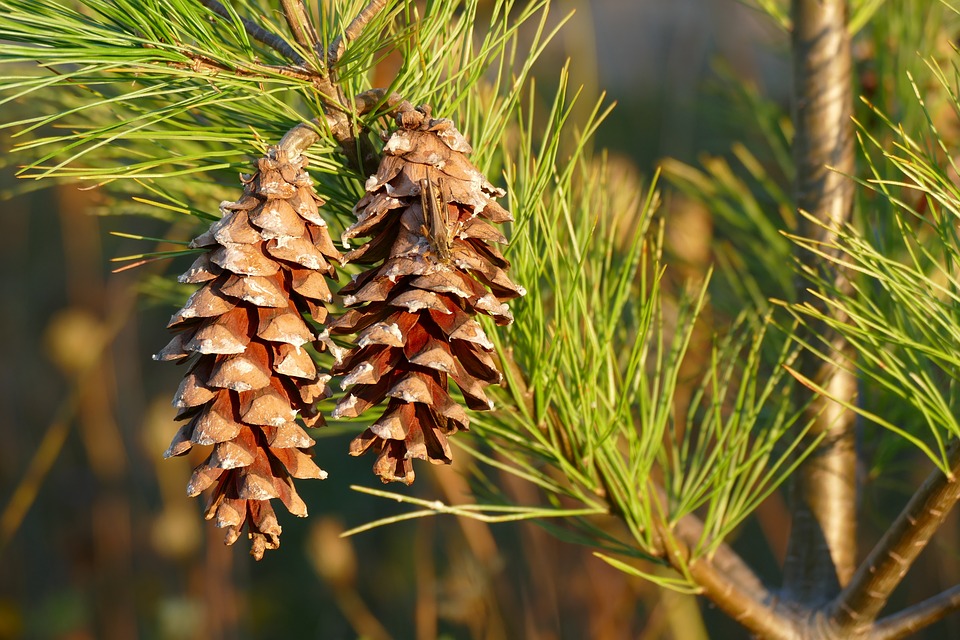Pine pollen: Hidden health benefits revealed
10/07/2018 / By Russel Davis

Pine pollen has only recently gained steam in the west, thanks largely to books published by renowned herbalist and author Stephen Buhner.
“Pine pollen given its potency, its similarity to ginseng in some of its actions, and its status as, perhaps, the premier phytoantrogen on the planet, should have been recognized long before now as the powerful medicinal that it is…[pine pollen is a] potent overall tonic to the body and its functioning, powerful nutritive and exceptionally effective androgen which raises testosterone levels in the blood and balances the androgen/estrogen ratio,” Buhner stated. Pine pollen products available in the market usually come in powdered supplements and tinctured extract forms.
Essential benefits of pine pollen
Pine trees have a lot more to offer other than being a festive centerpiece during holidays. Pine pollen has been considered a powerful superfood and medicine in Asia for more than 2,000 years. The pine product is widely-popular in China and Korea, as a potent longevity tonic that improves the body’s energy levels and boosts the immune system. In addition, Asian cultures consider pine pollen as a Jing-enhancing herb. Jing loosely translates to “life force” or “essence”. Plants labeled as “Jing tonics” are commonly used to treat weakness, stress-related burnout, exhaustion and various sexual imbalances such as low libido, infertility, and erectile dysfunction.
Pine pollen is known to contain powerful bio-available androgen phyto-hormones. These naturally-occurring phyto-hormones are found to be a lot safer compared with bio-identical hormones and prescription steroids. In addition, pine pollen does not interfere with normal negative feedback mechanism during hormone production. Pine pollen also contains phyto-chemicals akin to the male sex hormones including testosterone, dehydroepiandrosterone, androsterone, and androstenedione.

According to experts, the androgenic properties of pine pollen may contribute to its potency in building and maintaining healthy bone and muscle mass, as well as promoting a healthy metabolism. The experts also noted that these properties may explain pine pollen’s efficacy in promoting strong immune function, enhancing skin health, and driving libido. Pine pollen’s androgenic properties may also enhance breast health in women, and testicular and prostate health in men.
Health experts have also touted the potential of pine pollen in restoring healthy androgen levels, promoting cardiovascular health, and enhancing cognitive functions. In addition, pine pollen is known to contain the amino acid glutathione, which helps detoxify the body and improve liver and gallbladder health. Pine pollen is also found to contain antioxidant and anti-inflammatory properties that may potentially alleviate chronic pain. Furthermore, pine pollen is found to contain superoxide dismutase, a compound associated with better heart, liver, brain and blood health.
Animal studies back pine pollen’s efficacy
A study published in Phytotherapy Research revealed that pine pollen extract significantly reduced hindpaw swelling and stemmed cytokine production in mice. The research team also found that pine pollen extracts reduced serum LDL-cholesterol levels and increased HDL-cholesterol levels in the animal models. In addition, pine pollen supplementation was associated with marked suppression in arthritis score and paw edema. The researchers also noted that pine pollen supplementation for 49 days significantly reduced the levels of inflammatory markers. The results suggest that pine pollen could be beneficial in treating chronic inflammatory diseases.
Another study revealed that pine pollen supplementation mitigated renal functional lesion and reduced the renal weight/body weight ratio as well as the extracellular matrix accumulation in animal models of diabetic nephropathy. The research team also found that the extract may stave off oxidative damage to the animals’ kidney. The findings were published in Science & Technology Review.
See more news about plant-based nutrients at Phytonutrients.news.
Sources include:
Superfoods-for-SuperHealth.com
Submit a correction >>
Tagged Under:
disease prevention, natural cures, natural medicine, natural remedies, nutrients, pine pollen, pine tree, pollen, supplements
This article may contain statements that reflect the opinion of the author





















